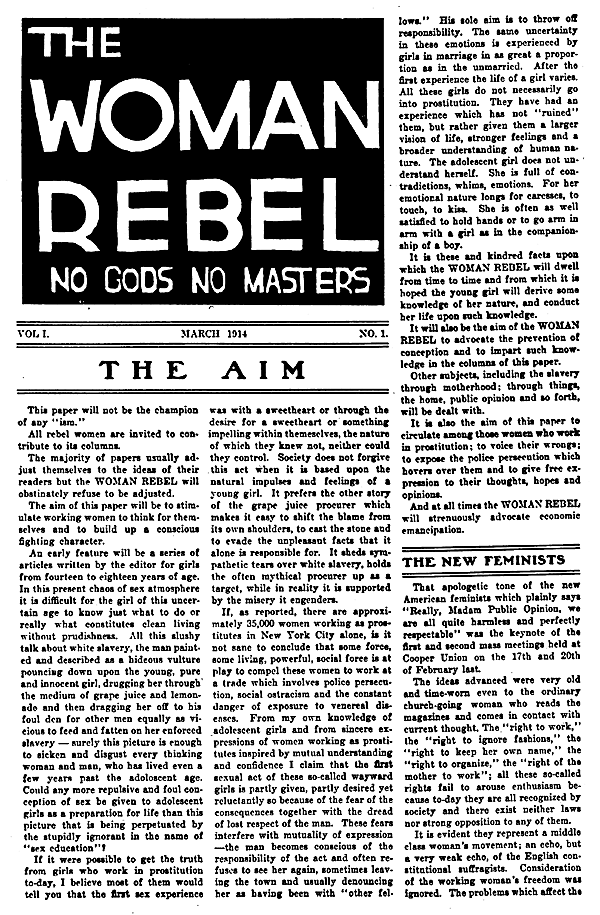Was Margaret Sanger racist?

After reading about Margaret Sanger in Rodger Streitmatter’s book, Voices of Revolution: The Dissident Press in America, I promptly sent a text to my roommate:
“I think I might have been Margaret Sanger in another life”
Then, after a couple minutes, I searched online to find out a bit more about her, and followed that message with another text:
“minus the sh**ty eugenics stuff”
When you look at her objectively from a feminist lens, what Margaret Sanger did was pretty sweet. She wanted women to be able to be protected during sex, and not have to worry about unwanted pregnancies due to lack of contraception. What prompted me to follow that first declaration with that second comment?

Well, let’s take a deeper look at Sanger. It’s no secret that she was a privileged woman – upper middle class, attractive, white. She was in a space where she could talk about birth control and sexuality, since all of her other immediate financial and social needs were met. Even when she was under fire for her publication, Woman Rebel, she had the means to simply move to Europe for a little while.
There is a strong argument made today that Margaret Sanger was a part of the movement in the 1920s that looked to move toward “racial betterment” – a.k.a. limit or entirely prevent people of color from procreating. I don’t think she intentionally wanted to weed out people of color in American society – at least not at first. Her initial goal was to help women who were unprepared to have kids by providing them with a method to prevent those pregnancies.
What she failed to fully realize were the connections to race and class.
Upper-middle class women like Margaret Sanger all knew about these birth control methods from their physicians. Poor women and women of color, however, did not have access to these physicians or these medications. As a result, these communities saw more unwanted pregnancies than most. Without an awareness of this connection, Sanger’s work contributed to larger efforts to sterilize black women, and weed out that demographic. What started out as a well-intentioned woman using her privilege to educate others on birth control, quickly turned into a dark, messy game of eugenics and forced sterilization.
As Sanger became more invested in her cause, every other social issue became secondary. She didn’t care if eugenicists worked to eliminate anyone who was not white; she simply used it as an argument to improve access to birth control.
That brings us to today. Does this mean Planned Parenthood is in evil organization started by a racist, rich white lady trying to eliminate half of the U.S. population?
Well, no, although some people may have you believe that.
So was Margaret Sanger a racist?
Well, kind of. I am in no way trying to apologize for her support of eugenics and the sterilization of an entire race of people simply to improve access to birth control. That’s just messed up.
What I am trying to say is that Sanger is flawed. Yet, her legacy lives on with every Planned Parenthood clinic that arises, or every time a woman is able to take her birth control pill and have sex without worrying about what might come after.
In a way, activists supporting reproductive rights have worked to transport Sanger’s work away from its eugenics ties and move it toward a place where people have the ability and choice to access and understand birth control methods. Those who don’t have this choice tend to come from areas in the United States that do not believe women should be controlling their reproductive health at all, but that is an entirely different issue.
When it comes to Margaret Sanger, we definitely owe her for the pill, IUDs, and most notably, Planned Parenthood. But we should also not be shy to critique her, and acknowledge her own advocacy for eugenics and racial elimination.
So let’s take our birth control as freely as we want, but let’s also not forget the darker side of how it got to us.





